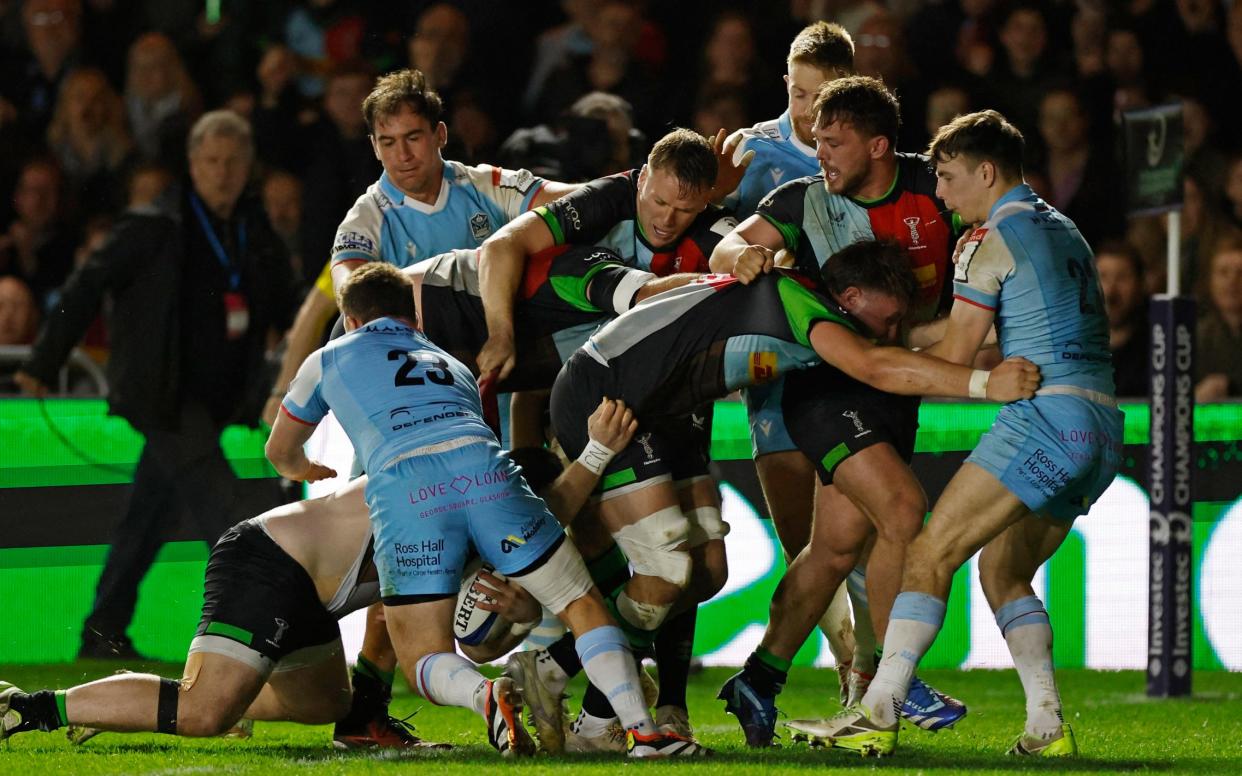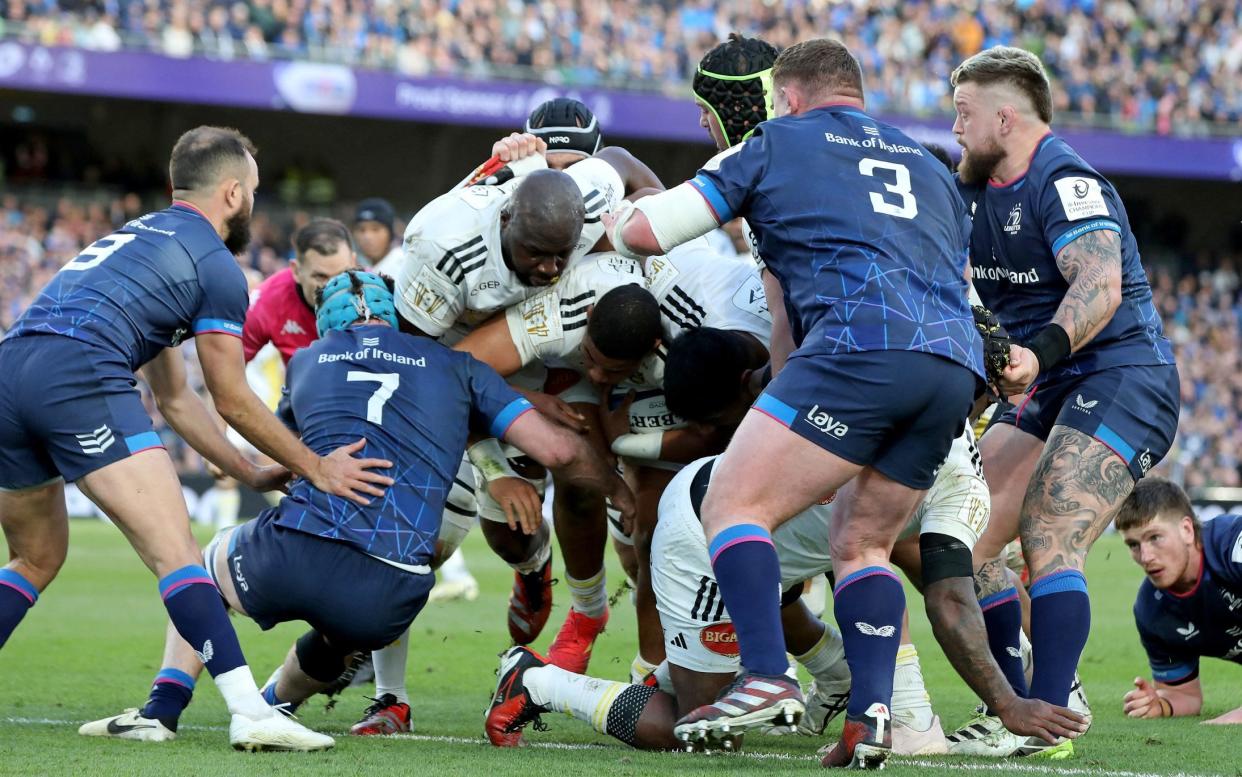
The maul is a bastion of rugby union, synonymous with the sport. Scour an English dictionary and the entry will be one of a handful of nouns – alongside the likes of flanker, ruck and scrum – where the definition is exclusively rugby.
The “tug-of-war” contest, with players on their feet grappling for both the ball and momentum, has become lesser-spotted in open play but remains a crucial element of the set-piece. It is one of the few remaining vestiges of rugby union’s identity.
The sport in its modern guise is closer to league than ever, but the maul is one unquestionably distinguishing feature.
For all that, the maul has apparently developed a bad rep. It was not too long ago that one of rugby’s most respected minds, the Kiwi Wayne Smith, was advocating its total abolition and, in some corners, it now languishes alongside the scrum in the league table of rugby’s most unfashionable facets.
One of those corners is the headquarters of the game’s law-makers, World Rugby. In its raft of amendments announced last month, the third phase of a five-step plan featured a set of closed law trials which “unions and competition owners will be encouraged to implement”. One of those encouraged-but-optional law trials took aim at the maul. Fourteen words only but a sentence which has sent ripples through the rugby world: “The ball must be played after the maul has been stopped once, not twice.”
Speaking earlier this month, Rob Baxter, Exeter’s director of rugby, was perplexed. He is not alone. World Rugby’s five-phase plan of law amendments aims to “enhance rugby’s global appeal” and “reimagine rugby’s entertainment factor” but the Chiefs’ chief argued the reverse. There are arguments of history and identity to consider when “depowering” rugby’s maul – as Baxter put it – but his argument was more substantive: a powerful maul attracts defenders and creates space for pretty tries; a weak one does the opposite.
Louis Deacon, forwards coach of the Red Roses and architect of one of the most potent mauls the sport has known during England’s 2022 World Cup campaign, agrees with Baxter. As a part of Leicester’s ferocious forward pack from 2000 to 2015, Deacon saw his fair share of mauls – but there are no vested interests here. Where once the Red Roses might have relied on their mighty maul, Deacon appreciates that it must form a part of an all-court attacking arsenal.
“It’s one of the fundamental parts of what rugby union is,” the former international lock tells Telegraph Sport. “I agree with Rob [Baxter]; because defences are so strong these days, there’s not a lot of space on the pitch. Using the maul to suck the defence in and create space is definitely a weapon.”
So, why has World Rugby introduced the edict? Examining data compiled by both Opta and Oval, the number of maul tries is decreasing on a yearly basis and comprised less than 10 per cent of scores during the last two Premiership seasons and last year’s men’s World Cup. Oval’s data show that defending mauls has become much more effective, too, and as a result teams maul less in attack.

Neither the strategic logic nor the data can provide proof of the maul’s blighting of the modern game. And, pound for pound, are mauls dull? If, in an alternate reality, there was no extra space created by an efficient maul, would that be reason enough to neuter them? Is there not a primitive beauty in watching the legs of eight athletes pumping in unison in a desperate attempt to shove their opposing pack backwards? Is that not thrilling in itself?
Since his arrival as Gloucester’s head coach, George Skivington has taken great pride in the Cherry and Whites’ maul, one of the league’s best over the past few years. Skivington acknowledges a “bit of a blip” this season but in terms of the wider Premiership he believes that it has laid the foundation for the likes of Northampton and Harlequins’ razzmatazz.
“I’m a massive advocate,” Skivington tells Telegraph Sport. “Set-piece is a huge part of rugby. You can have a really good set-piece and play really good rugby. It doesn’t have to be one or the other.
“Having a dominant maul allows you the opportunity to run the sort of plays that Saints have become masters of, for instance. If you know you have to stop the maul then you can be exposed elsewhere. These things that try to depower the set-piece eventually will take away from attacking, running rugby, because you’ll have more people on their feet defending – rugby-league style.
“We have to be really careful. The Premiership is an entertaining product week in, week out – so is rugby across the board for the most part. I don’t think we need to tinker with the game much. The product is very good. It’s dangerous and a bit sad to try and keep negating the set-piece.”
Skivington, like Baxter, would be against the Premiership adopting World Rugby’s optional maul law: “Everyone mauls slightly differently, but there’s a tug-of-war contest – which is its beauty. To have one stop… you might as well stop mauling if you do that.”
Even at Harlequins, the Premiership’s great entertainers, the maul is of utmost importance. Danny Wilson, the head coach, estimates that Quins are up to 12 driving line-out tries across the Premiership and Champions Cup this season – including one at a crucial moment in the thrilling quarter-final victory over Bordeaux – and have scored one in each of their last four games.
“Our maul has been strong all year,” Wilson says. “And if Quins have the ability to play two or three different ways – including a dominant set-piece of scrum and maul – then we become a much harder team to go against. If we have those two weapons then we become very difficult to play against. The best sides out there have both weapons.”
Advice that World Rugby and those pushing for the maul’s neutralisation would do well to heed.
Article courtesy of
Source link